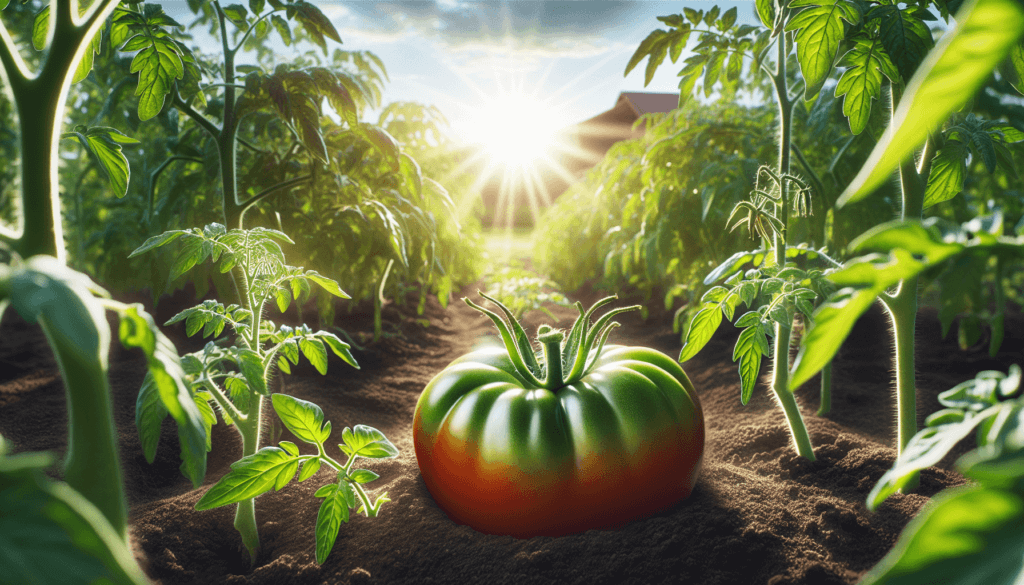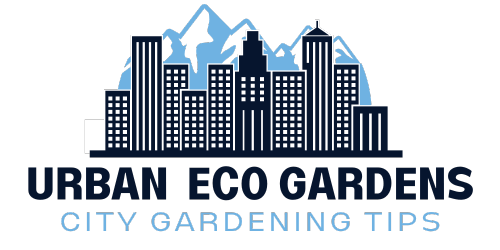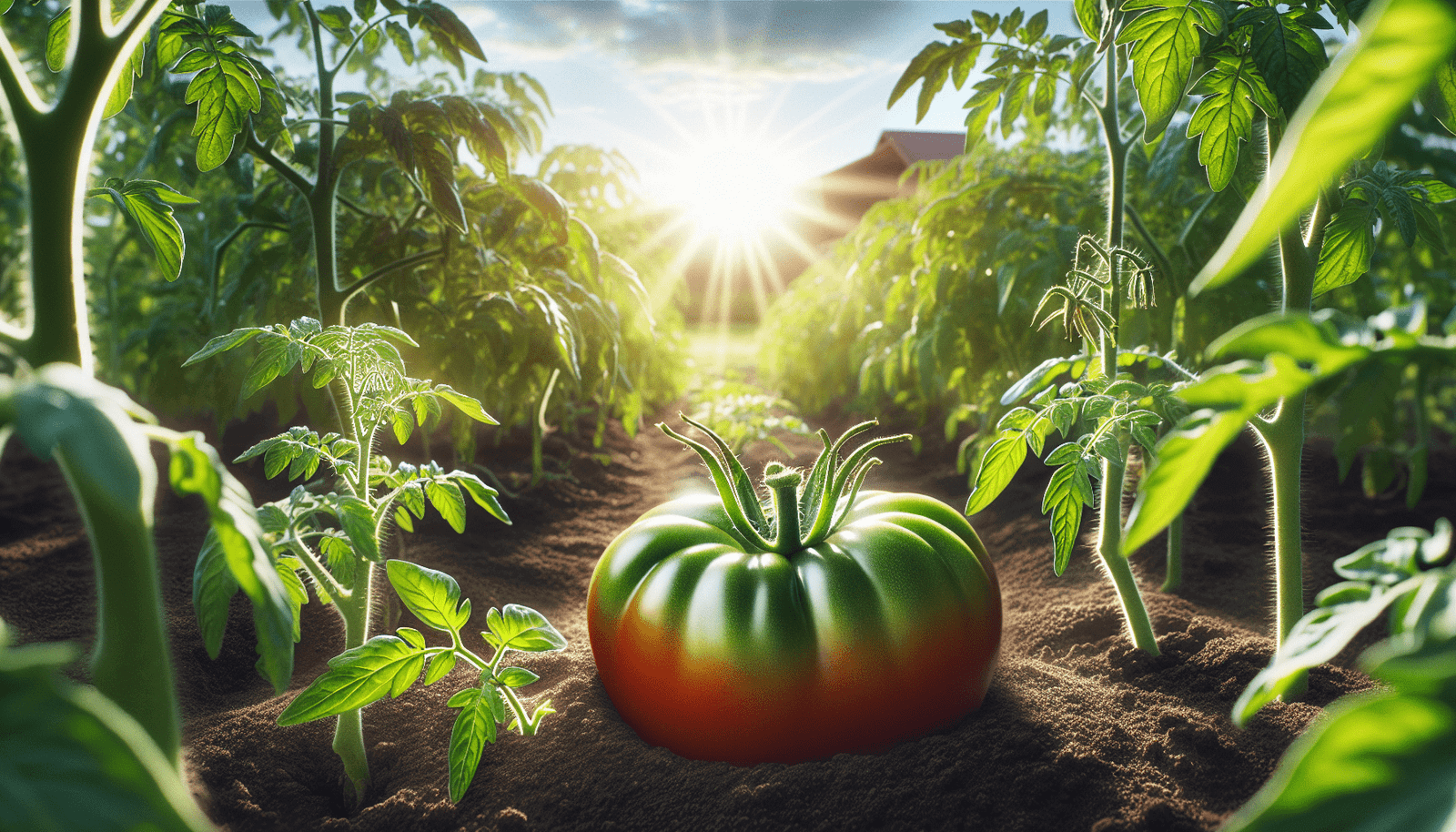If you have ever dreamed of having your own organic garden but have no idea how to start, then look no further. Our organic gardening courses offer the perfect opportunity to learn everything you need to know about creating and maintaining an environmentally-friendly garden. From understanding the principles of organic gardening to mastering techniques for soil preparation, pest control, and crop rotation, our courses provide a comprehensive and practical approach to sustainable gardening. Whether you are a beginner or have some experience in gardening, our friendly instructors will guide you through the process, ensuring that you develop the skills and knowledge to cultivate a flourishing organic garden of your own.
Benefits of Organic Gardening Courses
1.1 Environmental Benefits
Organic gardening courses offer numerous environmental benefits. By learning organic gardening techniques, you can contribute to the preservation and restoration of the environment. These courses teach sustainable practices such as natural pest control, composting, and soil management. By implementing these methods, you can reduce the use of harmful chemicals and pesticides, which in turn helps to protect water sources and maintain a healthy ecosystem. Organic gardening also promotes biodiversity, as it encourages the cultivation of a wide variety of plants and creates habitats for beneficial insects and wildlife. By enrolling in an organic gardening course, you can play an active role in conserving and protecting the environment.
1.2 Health Benefits
Another significant advantage of organic gardening courses is the potential health benefits they provide. Traditional gardening techniques often involve the use of synthetic chemicals and pesticides, which can have adverse effects on human health. By learning organic gardening practices, you can create a safer and healthier environment for yourself and your loved ones. Organic gardening courses focus on natural methods of pest control, which eliminate the need for harmful chemicals. Additionally, growing your own organic produce allows you to have direct control over the quality of the food you consume. By avoiding the use of pesticides and chemical fertilizers, you can ensure that your fruits and vegetables are free from harmful residues, providing you with a healthier and more nutritious diet.
Types of Organic Gardening Courses
2.1 Introduction to Organic Gardening
Introduction to Organic Gardening courses are designed for beginners who have little to no experience in gardening. These courses provide a solid foundation in organic gardening practices and cover topics such as soil preparation, seed starting, plant selection, and basic pest control methods. With the guidance and knowledge gained from these courses, participants will be equipped with the skills to start their own organic garden and grow their own food.
2.2 Advanced Organic Gardening
Advanced Organic Gardening courses are designed for individuals who already have a basic understanding of organic gardening practices and wish to expand their knowledge and skills further. These courses delve deeper into topics such as plant propagation, advanced pest management, crop rotation, and specialized gardening techniques (e.g., hydroponics or vertical gardening). Participants in these courses will learn advanced strategies to maximize yields and tackle complex gardening challenges.
2.3 Organic Pest Control
Organic Pest Control courses focus specifically on techniques and strategies for managing pests in an organic garden. Participants learn how to identify common garden pests, understand their life cycles, and implement organic pest control methods to minimize damage to plants. This includes techniques such as companion planting, biological controls (e.g., introducing beneficial insects), and natural pest deterrents. By taking this course, gardeners gain the skills to effectively control pests while promoting a healthy ecosystem.
2.4 Organic Soil Management
Organic Soil Management courses emphasize the importance of healthy soil in organic gardening. Participants learn about soil structure, nutrient cycles, and the effects of soil health on plant growth. These courses cover techniques such as composting, vermicomposting (using worms for composting), and soil amendments to improve soil fertility and structure. By understanding and implementing organic soil management practices, gardeners can create a nutrient-rich and sustainable growing environment for their plants.
2.5 Permaculture Design
Permaculture Design courses explore the principles of permaculture, a holistic approach to designing sustainable and self-sufficient systems. These courses teach participants how to integrate organic gardening techniques with principles such as water conservation, energy efficiency, and ecological harmony. By learning permaculture design, gardeners can create productive and resilient gardens that mimic natural ecosystems and minimize environmental impact.
2.6 Urban Organic Gardening
Urban Organic Gardening courses cater to individuals living in urban areas with limited space. These courses teach innovative techniques for growing organic produce in small spaces such as balconies, rooftops, and community gardens. Participants learn about container gardening, vertical gardening, and urban composting methods. Urban Organic Gardening courses provide valuable knowledge for those seeking to grow their own food in urban environments, fostering self-sufficiency and promoting sustainable living.
Finding Organic Gardening Courses
3.1 Local Agricultural Institutions
One way to find organic gardening courses is by exploring local agricultural institutions such as universities, colleges, and agricultural extension offices. These institutions often offer a range of courses tailored to different skill levels and interests. By checking their course catalogs or websites, you can find information on upcoming organic gardening courses along with details about the curriculum, instructors, and registration process.
3.2 Online Platforms and Websites
Another convenient way to find organic gardening courses is by searching online platforms and websites dedicated to gardening education. Websites like Coursera, Udemy, and MasterClass often offer a variety of online organic gardening courses. These platforms allow you to browse through course descriptions, read reviews from past participants, and enroll in courses that suit your needs and preferences. Online learning provides flexibility in terms of timing and location, making it a convenient option for those with busy schedules or limited access to local courses.

3.3 Gardening Associations and Clubs
Gardening associations and clubs are also excellent resources for finding organic gardening courses. These organizations often offer educational programs and workshops for members and the public. By joining a local gardening association or club, you can connect with like-minded individuals and access a network of gardening enthusiasts who can provide recommendations and information about organic gardening courses in your area.
3.4 Community Education Programs
Community education programs, often organized by local government or non-profit organizations, frequently offer organic gardening courses. These courses aim to provide accessible and affordable education for the community. Checking community education catalogs or websites can help you find organic gardening courses in your area. These programs often cover various gardening topics and may include hands-on workshops and field trips to enhance the learning experience.
3.5 Local Farms and Nurseries
Local organic farms and nurseries often offer educational opportunities in the form of workshops, farm tours, or apprenticeships. These hands-on experiences allow participants to learn organic gardening techniques directly from experienced farmers and growers. By reaching out to local farms and nurseries, you can inquire about any upcoming educational events, courses, or opportunities to learn about organic gardening firsthand.
Choosing the Right Organic Gardening Course
4.1 Course Objectives and Curriculum
When selecting an organic gardening course, it is essential to consider the course objectives and curriculum. Determine whether the course covers the specific topics and skills you are interested in learning. Look for courses that provide a comprehensive understanding of organic gardening principles and practical techniques that align with your goals and gardening aspirations.
4.2 Expertise of Instructors
The expertise and qualifications of the instructors is another crucial factor to consider. Look for courses taught by instructors with extensive experience and knowledge in organic gardening. Research their backgrounds, credentials, and previous teaching experience to ensure they have the expertise to guide you effectively. Instructors who actively practice organic gardening themselves can provide valuable insights and practical advice.
4.3 Duration and Time Commitment
Consider the duration and time commitment required for the course. Evaluate whether you can allocate sufficient time to attend and complete the course. Some courses may span over several weeks or months, requiring regular participation and completion of assignments or projects. Assess your availability and choose a course that fits well with your schedule and availability.
4.4 Course Format (In-person or Online)
Decide whether you prefer an in-person or online course format. In-person courses provide the opportunity for direct interaction with instructors and fellow participants. You can receive immediate feedback and engage in hands-on activities. On the other hand, online courses offer flexibility in terms of timing and location. Consider your learning style, accessibility to courses in your area, and the level of interaction and support you require to make an informed decision.
4.5 Cost and Financial Considerations
Lastly, consider the cost of the course and any additional expenses associated with it. Evaluate whether the course fee is within your budget and whether it represents a reasonable value for the knowledge and skills you will gain. Take into account any additional costs such as course materials, transportation, or accommodation if applicable. Balancing your financial considerations with the quality and benefits of the course will help you select the right organic gardening course.
Practical Skills and Knowledge Gained
5.1 Organic Planting and Cultivation Techniques
One of the key areas of knowledge gained from organic gardening courses is learning various organic planting and cultivation techniques. Participants learn about seed selection and starting, transplanting, and proper plant care methods. These courses provide insights into creating optimal growing conditions for different types of plants, along with techniques to ensure healthy growth and maximum yields.
5.2 Composting and Vermiculture
Organic gardening courses typically cover composting and vermicomposting, which are fundamental practices in organic gardening. Participants gain knowledge on how to create and maintain a compost pile, including the proper balance of organic materials, aeration, and moisture levels. Vermiculture, the process of using worms to break down organic waste, is also often taught, providing participants with a valuable method to recycle kitchen scraps and create nutrient-rich compost.

5.3 Crop Rotation and Companion Planting
Crop rotation and companion planting are essential techniques for maintaining soil health and pest control in organic gardening. Organic gardening courses teach participants about the benefits of rotating crops to minimize pest and disease pressure and improve soil fertility. In addition, companion planting strategies are explored, which involve planting specific combinations of plants to enhance growth, deter pests, and promote beneficial interactions between species.
5.4 Effective Watering and Irrigation Methods
Water conservation is a crucial aspect of organic gardening. Organic gardening courses teach participants about effective watering and irrigation methods to maximize water efficiency and minimize waste. Participants learn about the different irrigation systems available, such as drip irrigation or rainwater harvesting, and how to determine appropriate watering schedules based on plant needs and environmental conditions.
5.5 Harvesting and Preservation
The final stage of organic gardening is harvesting and preserving the produce. Organic gardening courses provide guidance on when and how to harvest crops for optimum flavor and nutritional value. Additionally, participants learn various methods of food preservation, including canning, freezing, and drying, to enjoy the fruits of their labor beyond the growing season.
Hands-On Experience and Field Trips
6.1 Practical Gardening Exercises
Many organic gardening courses offer practical gardening exercises that allow participants to apply their knowledge in a hands-on setting. These exercises can include activities such as planting seedlings, preparing soil beds, creating compost, or designing garden layouts. Practical exercises provide participants with valuable experience and reinforce the concepts and techniques learned in the classroom.
6.2 Visits to Organic Farms and Gardens
Field trips to organic farms and gardens are often incorporated into organic gardening courses. These trips provide participants with an opportunity to observe and learn from experienced organic growers and see firsthand how organic gardening principles are applied in a real-life setting. Visiting organic farms and gardens offers inspiration, fosters a deeper understanding of organic gardening practices, and allows for networking opportunities with fellow gardening enthusiasts.
6.3 Field Trips to Seed Banks and Botanical Gardens
Some organic gardening courses may include field trips to seed banks and botanical gardens. These trips offer participants a chance to explore diverse plant species, learn about seed saving and preservation, and expand their understanding of plant biodiversity. Field trips to seed banks and botanical gardens provide a unique educational experience and inspire participants to explore new plant varieties and conservation efforts.
Networking and Community Building
7.1 Interacting with Like-minded Individuals
Enrolling in an organic gardening course provides an excellent opportunity to interact and connect with like-minded individuals who share a passion for organic gardening. Participants can exchange ideas, share experiences, and learn from each other’s successes and challenges. Networking with fellow gardening enthusiasts can lead to lasting friendships and valuable connections within the organic gardening community.
7.2 Participating in Gardening Projects
Organic gardening courses often encourage participants to engage in gardening projects within their communities. These projects can include volunteering at community gardens, participating in urban greening initiatives, or contributing to local school gardens. By actively participating in such projects, participants have the chance to apply their newly acquired skills, contribute to the community, and make a positive difference in promoting sustainable practices.
7.3 Engaging with Local Sustainable Initiatives
Organic gardening courses can also act as a gateway to engaging with local sustainable initiatives and organizations. Participants can learn about and actively support initiatives that promote sustainable agriculture, environmentally friendly practices, and local food systems. By engaging with local sustainable initiatives, participants can amplify the impact of their organic gardening efforts and contribute to broader community and environmental goals.
Certifications and Accreditation
8.1 Recognized Organic Agriculture Certifications
Some organic gardening courses offer the opportunity to obtain recognized organic agriculture certifications upon completion. These certifications may be issued by governing bodies or organizations that assess and verify the adherence to organic farming standards. These certifications provide formal recognition of the knowledge and skills gained in organic gardening and can enhance credibility and employability in the field of organic agriculture.
8.2 Certification Requirements and Assessments
When considering a course that offers certification, it is important to understand the requirements and assessments involved. Some certifications may require additional exams, practical assessments, or the completion of specific projects. Ensure that you are aware of the certification process and the criteria for successful completion before enrolling in a course offering certification.
8.3 Importance of Accreditation for Future Opportunities
Acquiring a certification from an accredited organic gardening course can open up various opportunities for future endeavors. These certifications demonstrate a commitment to sustainable practices and a comprehensive understanding of organic gardening techniques and principles. They can enhance your credibility when applying for jobs in the field of organic agriculture, pursuing further education, or starting your own organic gardening business.
Online Organic Gardening Courses
9.1 Benefits of Online Learning
Online organic gardening courses offer numerous benefits that make them an attractive option for many individuals. Online learning provides flexibility in terms of time and location, allowing participants to access course material and complete assignments at their own pace. This flexibility makes it easier for individuals with busy schedules or limited access to local courses to pursue their interest in organic gardening. Additionally, online courses often offer multimedia resources, including videos, interactive quizzes, and discussion forums, which enhance the learning experience.
9.2 Online Course Platforms and Providers
There are various online platforms and providers that offer organic gardening courses. Platforms like Coursera, Udemy, and MasterClass host a wide range of online courses taught by experts in the field. These platforms provide convenient access to high-quality course content, often at affordable prices. By exploring different online course platforms and providers, individuals can find courses that suit their specific interests and learning preferences.
9.3 Course Schedules and Flexibility
Online organic gardening courses typically offer flexibility in terms of course schedules and time commitment. Participants can access course materials and lectures at any time, allowing them to control their learning pace. This flexibility enables individuals to balance their course commitments alongside their personal and professional responsibilities. Online courses provide the convenience of learning from the comfort of your own home, eliminating the need for commuting to physical classrooms.
9.4 Online Discussion Forums and Support Networks
Many online organic gardening courses incorporate discussion forums and support networks to foster interaction and collaboration among participants. These platforms allow individuals to connect with fellow learners, share insights and experiences, and seek answers to specific questions. Engaging in online discussions can provide valuable perspectives, further enriching the learning experience. The support and guidance offered by both instructors and peers can contribute to a more comprehensive understanding of organic gardening principles and practices.
Conclusion
Organic gardening courses offer a wealth of knowledge, practical skills, and opportunities for personal growth. From learning sustainable practices to gaining hands-on experience, these courses empower individuals to cultivate their own organic gardens and contribute to a healthier and more sustainable environment. Whether you choose in-person or online courses, the benefits of organic gardening education extend far beyond growing plants. By enrolling in an organic gardening course, you embark on a journey of self-discovery, connection, and positive impact that can enrich your life and the lives of others for years to come.


